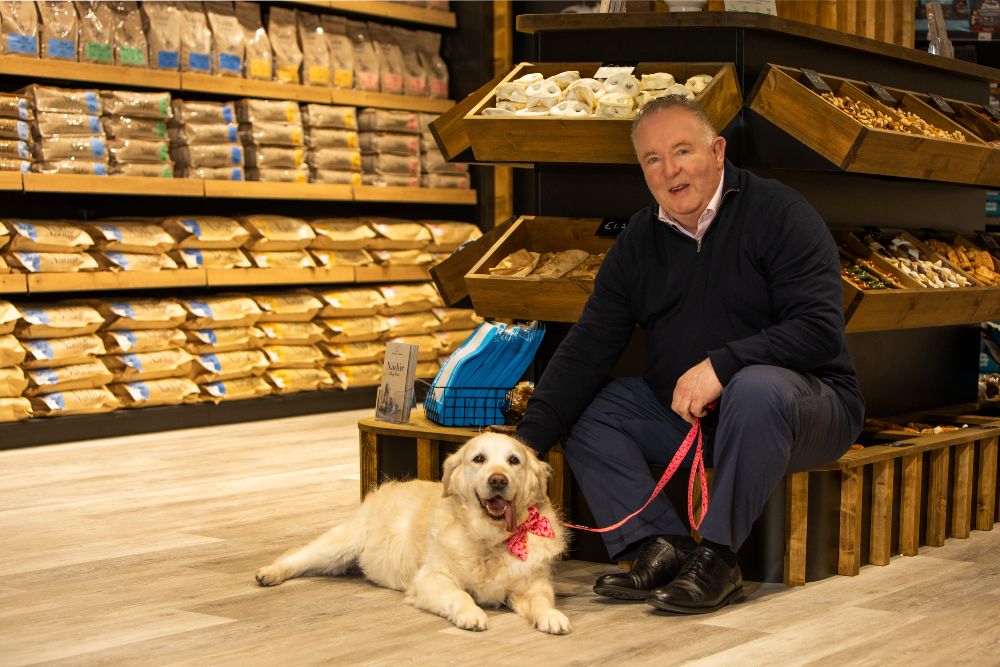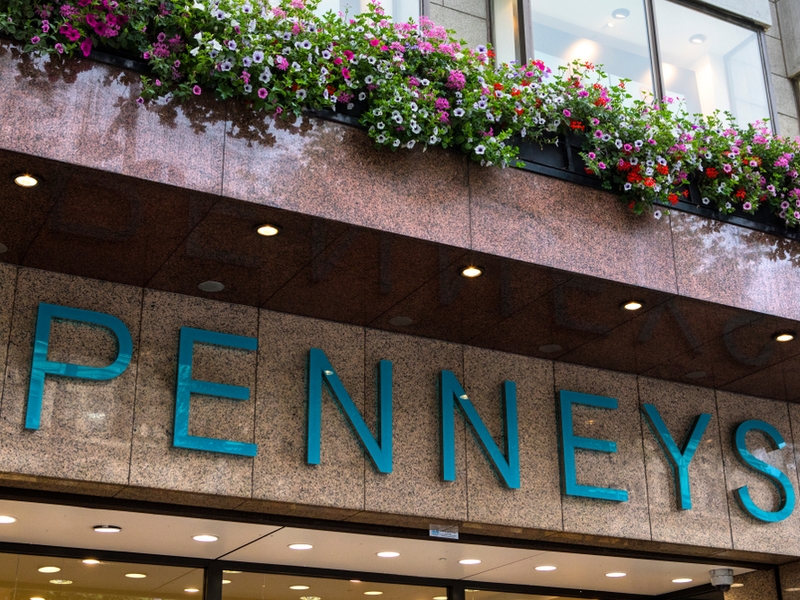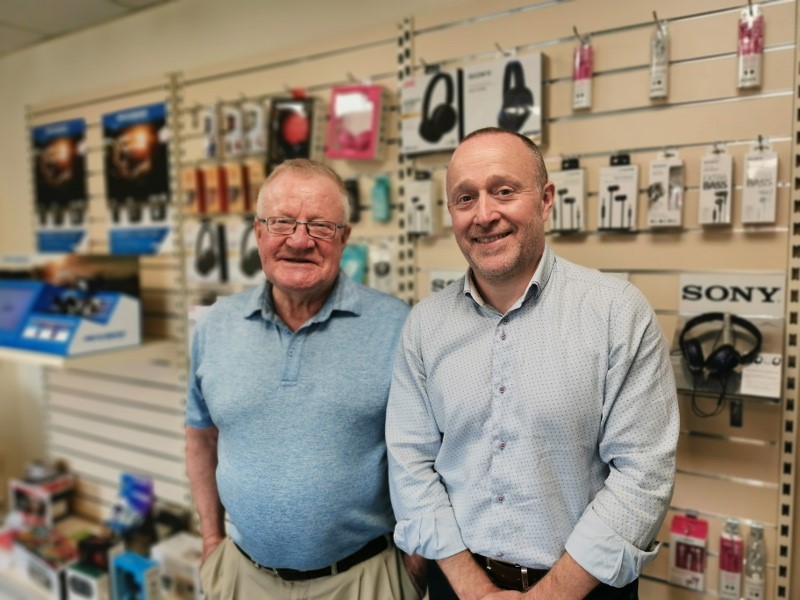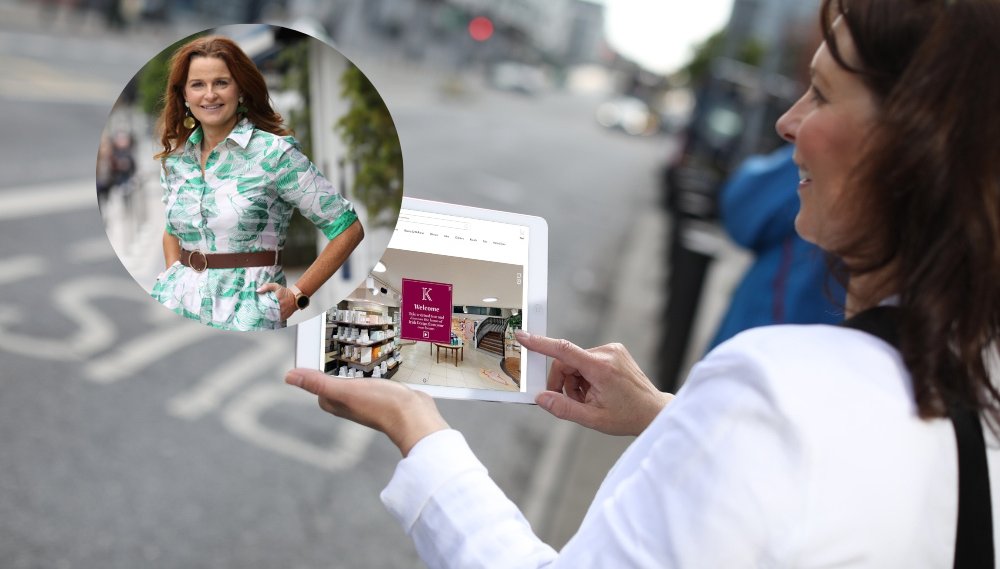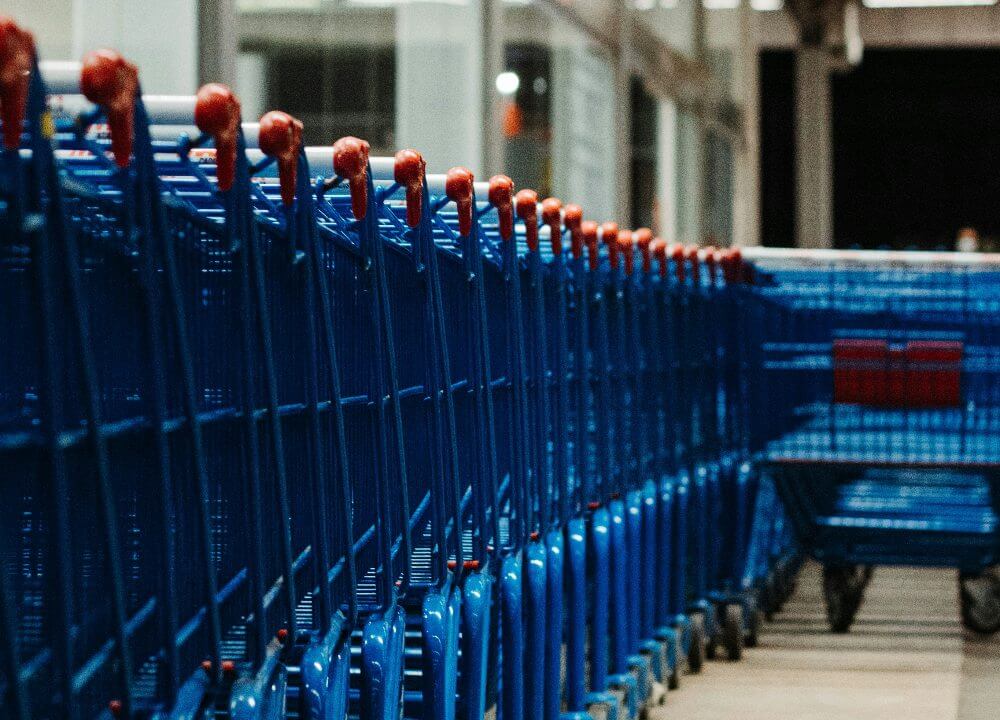Podcast Ep 255: We talk to Anthony Gallagher of Petstop who celebrates 30 years in business this year and opened his 14th retail outlet in Rathmines.
No matter how many business books you read, Ted Talks you watch or college lectures you attend, the psychology of business is firmly rooted in knowledge: you need to know your customer, your stock and your margin.
In the case of Anthony Gallagher, founder and CEO of Petstop, it’s a case of knowing your customer and their pets as well as stock and margin. And if there is one truth today, it is that people’s pets are part of the family. He should know, he is a proud pet parent to two golden retrievers.
“Our motto has been ‘Happy pets, happy people,’ and that’s what it’s all about. We’re here to look after the pets – if we do a good job at that, the people will come”
In this interview Gallagher explains how got into the pet products business by chance. He talks about how he started the business originally to sell it but instead grew a scaling firm that is also a force in the world of e-commerce. In many way, he is probably one of Ireland’s most experienced e-commerce retailers.
A grounding in retail
-
You can also listen to the Podcast on:
-
Spotify
-
SoundCloud
-
Apple
“I started my journey in retail with Penneys back in the day. Penneys opened a new store in Sligo. I had just taken a year off before going to college to save up some money. I was there for about four weeks, sweeping the floor, helping them out as they opened the store, and then they invited me to join the management programme. I became a training manager with Penneys and worked my way up over six years to be a senior manager in the company, opening new stores.”
There is a saying that the key to retail is the detail. His early career with Penneys brought Gallagher into the orbit of Penneys’ founder, the legendary Arthur Ryan. He’s not surprised that Penneys and its parent company Primark are now a global business.
“I used to see him nearly every Saturday. He’d come out, have a bit of lunch, sit down with me in my office, have a cup of tea, bring a sandwich for the two of us, and we’d have a chat. He was a very open guy.
“Penneys, even though it was a big business back then, was still a pretty flat organisation. Arthur wanted to get out and speak to the guys on the ground and see what was happening. He didn’t live in an ivory tower – he walked the floors, and that’s why he was so good. He knew what was selling. He knew the day a line came in if it was going to be good or not. And that’s why they’re so successful.”
After six years with Penneys, Gallagher decided it was time to do his own thing and bought a deli in Nutgove Shopping Centre. “Within a year, I doubled the value and sold it, then travelled for a couple of months around Europe. I ended up in London doing some consulting work and ended up doing a project for Quaker Oats on the Irish pet market. They had a distributor in Ireland at the time, so I ended up taking over as the distributor, and suddenly I was in the pet food business. Over a six-year period, I grew the brand by about 500%.”
When Quaker Oats sold its pet food business to Spillers, Gallagher decided it was time to combine his retail experience with Penneys with his experience in the pet food business and opened his first Petstop store in Sandyford in 1995. His belief was that the pet supplies market needed a modern retail experience.
Barking up the right tree
“My plan always was to get in, go fast, and get out I thought I’d do this, get big, make a pile of money, and move on to the next thing. That was the strategy. By 1998 we had five stores, and the plan was to sell to a US company called PetSmart, who had moved to the UK. They had bought a company called Pet City and paid 2.7 times turnover for the business. I thought, ‘Okay, this is our exit strategy. We get big, we sell to PetSmart, and we go off and do something else.’
“Unfortunately, PetSmart lost a fortune in the UK. They discovered the UK market and the US market are totally different beasts. They went back to the US with their tail between their legs, and suddenly I had a business that I had to run as a business, not just scale it up to sell it.
“Over the next year, we got to break even. Then in 1999, the dot-com boom had arrived, and pets were huge in the dot-com world. I set up a business called PetMad.com, and within four or five months, we had a deal done to sell it to a US company for $42 million. I had a couple of investors on board.”
However, in April 2000 the dot.com bubble burst and a challenging time ensued. “We paid everybody and eventually liquidated PetMad, but effectively went from having five stores to one store. We clawed our way back over the next six years, paid off all the money we owed, bought out the investors, and then started to look at rebuilding the business again.
“Around 2006, we were looking at expanding again, but prices were too high – it was the middle of the Celtic Tiger. Property prices were huge, rents were huge, all the costs of doing business were huge. So we held on, and when the [property] bubble burst in 2008, we were able to take advantage of it. From 2009 on, we started opening new stores, and now we’re up to our 15th store, including the online business.”
The reality for most businesses – especially in retail – is that it is a never-ending series of peaks and troughs. The challenges posed for Petstop by the Covid-19 pandemic in 2020 were more around keeping up with demand.
“We were an essential business because we sell food for pets, so we didn’t close. In fact, overnight, our online business increased by 1,000% – from doing 200 orders a day to 2,000. It was absolutely crazy.”
Gallagher’s daughter had been living in Taiwan and alerted him that something was happening in Asia. “So I decided to get everything we could out of China, and then we bought up as much stock as we could in the European market. Our warehouse was jam-packed when Covid hit –my staff felt I had gone mad! We couldn’t get down the aisles in the warehouse with so much stock.
“But when Leo Varadkar called the pandemic, it just went absolutely mental, both online and in-store. Because we were a small team, we were nimble and able to pivot. People were working from 6am in the morning in two shifts, finishing at 2am or 3amEvery order that came in that day got shipped.
“We set up a second store in Swords as a warehouse. It was still open to the public, but we brought pallets of food, treats, and toys there and picked from that store. Everybody helped – office staff, store managers, everybody. My sons who were in college came in too – it was all hands on deck.”
Gallagher’s main purpose around this time was keeping his people motivated and fed with pizzas and sandwiches for the hungry workers, proving the adage that an army marches on its stomach.
While business has since normalised since the end of the pandemic, Gallagher is still focused on growing the business. “We’ve opened six new stores between 2023 and 2025, so we’re continuing to expand. But I think the biggest killer now is the uncertainty. The uncertainty that Mr. Trump and his tariffs have brought to the global economy is just crazy – it doesn’t make any sense.
“We’re not unduly affected as of now because we don’t import a lot of stuff from the US, but we do have a shareholding in a pet treat plant down in Cork which exports quite a bit to the US, and that is going to be under pressure.
“But the biggest impact is on confidence, and we can already see it in consumer spending. Bigger ticket items like beds and discretionary spends like leads, collars, and toys are down significantly on last year. Food, treats, and consumables are up or holding their own, but the discretionary spend is down.”
He predicts the trade wars could have a catastrophic effect on the global economy. “Ireland’s a small, open economy. It’s all about confidence. We were looking at opening another couple of stores this year but have put them on hold to see how everything develops. We just don’t want to be caught over-exposed. So it’s really now about battening down the hatches, making sure the six new stores we’ve opened in the last couple of years are all performing well.”
Woof trade: How to make it in e-commerce
He regards his online store as technically his 15th store. “I’ve always looked at online as another distribution channel – how can we use it effectively to get to markets where we’re not physically present? We have a range of 12,500 products that we can’t fit into every store.
“We’ve had lots of opportunities to exit, with really big prices offered because pets are now back in vogue with private equity”
“I suppose the key for us, and why our online business has been so successful, is really about reliability. People want to know if they order their dog food today, will they have it tomorrow? 99.5% of people get their delivery the next day. And there’s no premium for that – that’s our standard delivery.
“Do things go wrong from time to time? Yes. We’re still shipping about 1,000 orders a day, every day. The odd one goes wrong, but it’s very rare. If you look at our reviews on Trustpilot, we’ve got a 9.6 – a really high score. That’s down to the people, the staff in the warehouse and the stores looking after the customers. If there’s a problem, don’t hide – get out there and sort it out.
“It’s about having stock – if it’s on our website, we have it in stock. And secondly, making sure it’s picked and packed correctly and it goes out that day so a customer has it tomorrow. It’s no more difficult than that.
“The website itself is a massive tool because people research online, buy offline. People can see on our website that a product is available in our store in Blanchardstown – 15 or 3 in stock. So they can walk with confidence and know it’s going to be there, or they can click and collect.
“The beauty of online customers is you can see exactly what they’re ordering and how often. You know that Anthony Gallagher has got a golden retriever because he’s ordering golden retriever food all the time, so you can personalise your message. You know where they live – you have a lot of details about them.
“To me, it’s a bit like going back to the way shopping was in the 60s and 70s. My mother would ring up the butcher and say ‘Can we get two pounds of round steak mince and a pound of sausages?’ And the butcher boy on the bike would deliver it to her door. So it’s different, but the same principle still applies.
“It’s still about knowing what the customer wants, trying to match their price expectations with what you can make a margin on, and delivering in the correct fashion. That’s what customers want – they want to know that if they order something today, they’re going to have it tomorrow or when you promise. Once they understand that and once they trust you, you can grow your business phenomenally.”
So what’s Gallagher most proud of after 30 years in business? “It is the people we have. I have a large number of staff who have been with me for many years – Suzanne, Shirley, Grace, Donna, Damien, I could name lots of people. Suzanne will be with us 29 years, and her children now work for Petstop. Shirley is with me 29 years this year, and again, her daughter Nicole has now joined the business as a part-time staff member, just like she did 29 years ago. So it’s becoming multi-generational.”
So, having initially set the business up with the intention of selling it, is it fair to assume Petstop itself will become a multi-generational business.
“I have three children, and they’ve all worked in the business from 12 to14 years of age – sweeping the floors, putting the rubbish out, whatever needed to be done, picking orders in the warehouse, serving customers. My son Fionn is 27 now and just finalising becoming an accountant. He’s worked for a number of businesses as an accountant and is going to join us in October. So that will be the next generation.
“We’ve had lots of opportunities to exit, with really big prices offered because pets are now back in vogue with private equity. We’ve been offered crazy figures for the business. I sometimes wonder if I’ll look back, a bit like the guy who refused The Beatles saying ‘bands with guitars are a thing of the past,’ and think ‘I should have taken that check. That was a stupid mistake.’ But we’re lucky – we’ve got a good business, we’re still growing. We’ve got great people, new people coming in, people that have been around for 29 years. To me, it’s all about the people, and that’s what I’m proudest of.
“Even our new store in Rathmines is a fabulous store, but all the design work has been done in-house by my own people. That’s what I’m most proud of – the people and the pets.
“Our motto has been ‘Happy pets, happy people,’ and that’s what it’s all about. We’re here to look after the pets – if we do a good job at that, the people will come.”
-
Bank of Ireland is welcoming new customers every day – funding investments, working capital and expansions across multiple sectors. To learn more, click here
-
For support in challenging times, click here
-
Listen to the ThinkBusiness Podcast for business insights and inspiration. All episodes are here. You can also listen to the Podcast on:
-
Spotify
-
SoundCloud
-
Apple

